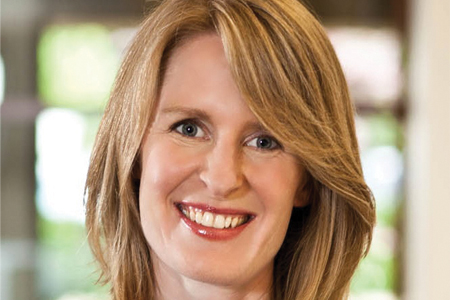Companies To Watch: Osel
By Wayne Koberstein, Executive Editor, Life Science Leader
Follow Me On Twitter @WayneKoberstein
Live biotherapeutics to restore microbiomes — in midstage development for vaginal and urinary conditions — with a special focus on women’s health
SNAPSHOT
 Osel is both a pioneer and a resurgent player in the microbiome space and in women’s health, with two midstage clinical programs, Lactin-V for bacterial vaginosis and urinary tract infections and CBM588 for antibiotic-associated diarrhea. A third program in HIV prevention uses proprietary mucosal delivery of an engineered virus-fighting bacteria in the vagina. Osel’s products are all “live biotherapeutics,” blazing a new regulatory pathway toward FDA approval.
Osel is both a pioneer and a resurgent player in the microbiome space and in women’s health, with two midstage clinical programs, Lactin-V for bacterial vaginosis and urinary tract infections and CBM588 for antibiotic-associated diarrhea. A third program in HIV prevention uses proprietary mucosal delivery of an engineered virus-fighting bacteria in the vagina. Osel’s products are all “live biotherapeutics,” blazing a new regulatory pathway toward FDA approval.
WHAT’S AT STAKE
Everyone talks about the microbiome — so it’s good to see someone doing something about it. You might be forgiven for thinking it is all covered — nowadays, pharmacy and healthproduct shelves burst with probiotics, varying by their colorful packaging with who-knows-what inside, all promising a kind of liberation from suffering “down there.” Osel, a longtime pioneer in the microbiome field, has brought science, clinical data, careful formulation, and delivery to the table. Through many years of big trials and small triumphs, Osel has designed and developed live biotherapeutics not only with the usual microbiomic focus on the gut but also on women’s health — vaginal and urinary infection, and longer term in HIV prevention.
“There is a huge difference between our products and the previous probiotics, as you say, available over the counter,” says CEO KT Moortgat. “Generally, they may not be harmful, but frequently they supply the wrong microbes to the wrong part of the body. All the products we are developing are FDA regulated; they go through clinical trials to demonstrate clinical safety and efficacy.” A veteran academicentrepreneur at the University of California, San Francisco (UCSF) and driver of the California Institute for Quantitative Biosciences (QB3- UCSF), Moortgat joined the company only months ago as the interim CEO. Her arrival followed a decade-long quiet period for Osel, which had started in 1999 based on research by its founder, Dr. Peter Lee, then at Stanford. Lee invented the novel mucosal delivery technology, MucoCept, the platform for Osel’s HIV-prevention program, a descendant of his Stanford research. The two pipeline products, Lactin-V and CBM588, employ other unique formulation and delivery platforms, invented and refined at the company and each suited for its particular therapeutic environment. Lactin-V is a single strain of Lactobacillus identified in a healthy vaginal microbiome and female urinary tract, and has been demonstrated to lower common vaginal and urinary infections in previous trials. A proprietary applicator delivers the bacteria, now in U.S. Phase 2b trials for the two indications. CBM588 is a bacteria species taken orally to restore the natural, mutli-bacterial microbiome and reduce inflammation in the bowel. Its U.S. Phase 2 trial for treating antibiotic-associated diarrhea reflects its indication in Japan, where it has been sold for years. CBM588 is also in preclinical testing for inflammatory bowel disease.
“The gut and the urogenital tracts are very different,” Moortgat explains. “In the gut, not only do you want a multitude of individual microbes, but you also want hundreds of different species to be present. When there’s a low diversity, it causes gut problems. In the vaginal microbiome, it’s the opposite — only a few beneficial species exist in the healthy vaginal tract, and high diversity is associated with a disrupted microbiome and infection.” Native bacterial species maintain a healthy environment in their natural setting by colonizing and “antagonizing” harmful non-natives.
Besides formulation and delivery, Moortgat says the most important competitive factor for Osel and others in this space is the accuracy of measurement and selection of healthy microbiome constituents. “What species should each microbial environment contain, which strains are most protective, and how many of each kind?” How well Osel answers those critical questions will determine the ultimate success of its pioneering products.
Vital Statistics
Employees: 10
Headquarters: Mountain View, CA
Finances:
Global private investment, amounts not disclosed.
Research Partnership Funding
NIH, including SBIR funding; Gates Foundation
Other Partners
UCSF Department of Obstetrics, Gynecology, and Reproductive Services for published studies
UW Department of Medicine for Phase 1 and 2 studies
Latest Updates
March 2015: New Phase 2b trial of Lactin-V in vaginal and urinary infections is enrolling subjects.
